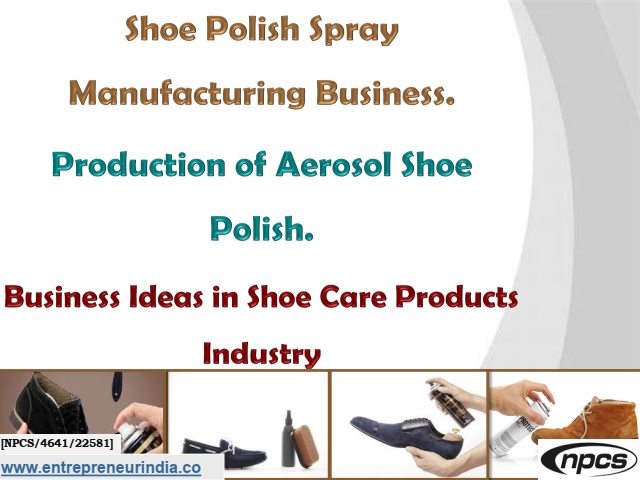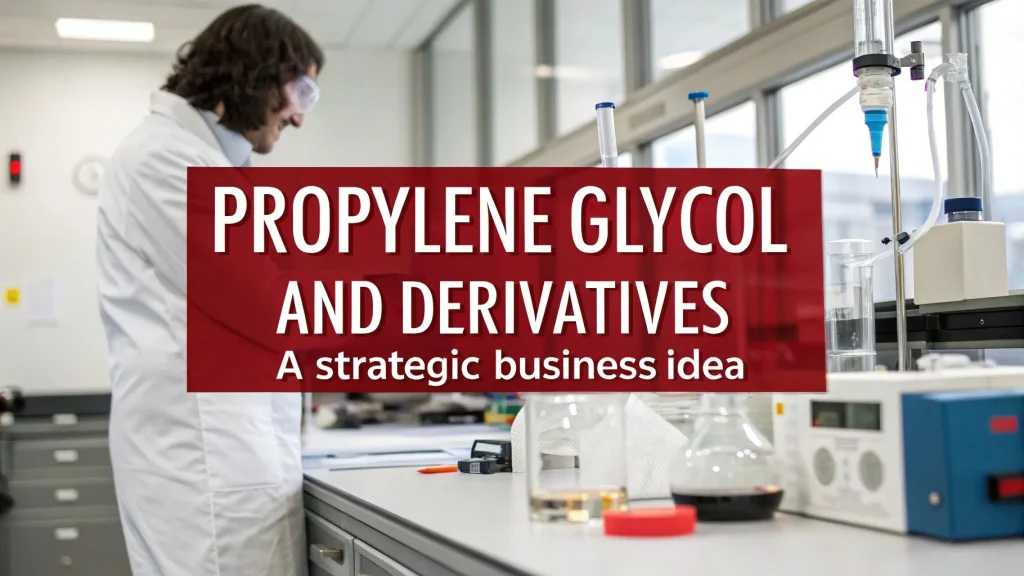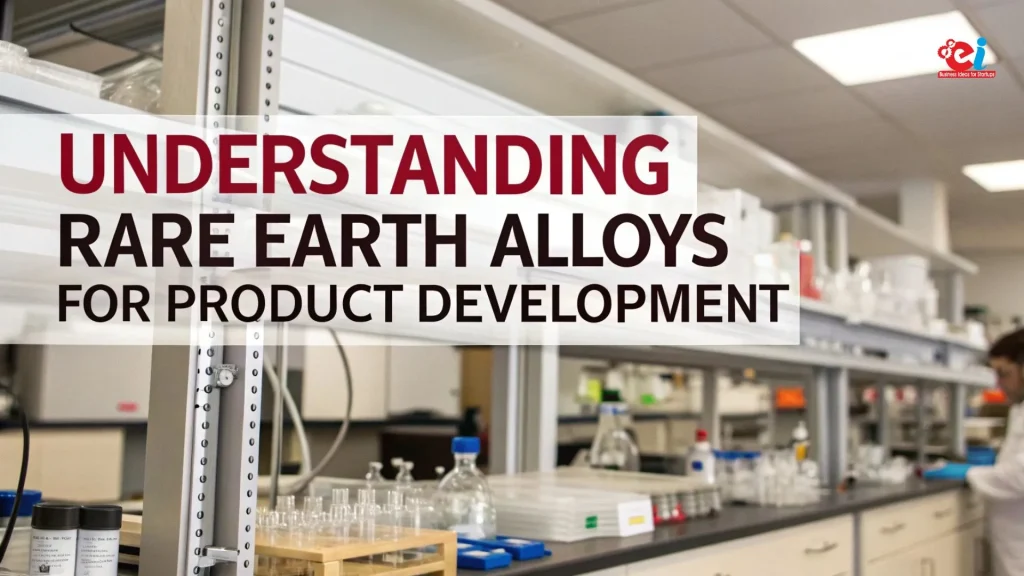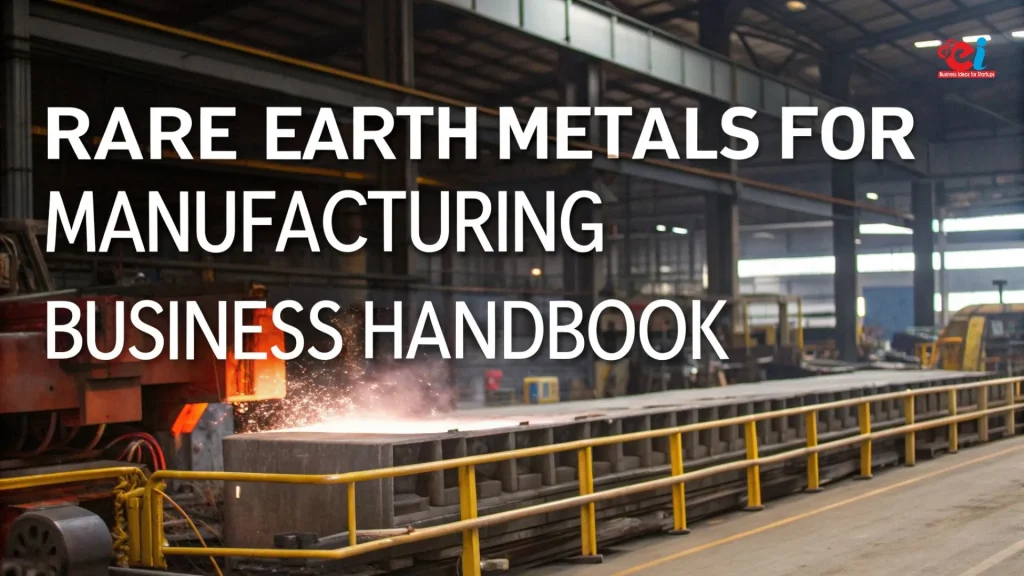
The Shoe Polish Spray Manufacturing Business is gaining popularity as consumers demand more convenient, fast-acting shoe care solutions. Traditional wax-based polish is slowly being replaced by spray-based alternatives due to their ease of application, instant shine, and suitability for various footwear types. With urban lifestyles becoming busier, the demand for instant-use products is rising steadily. As a result, starting a Shoe Polish Spray Manufacturing Business offers entrepreneurs a lucrative opportunity in both domestic and international markets. It combines low operational costs with a high margin potential, making it a great small-to-medium scale venture.
What is Shoe Polish Spray?
Shoe polish spray is a modern shoe care solution designed to clean, shine, and protect shoes quickly. It typically comes in aerosol or pump spray bottles and is available in different colors like black, brown, and neutral.
The primary benefits include:
-
Easy application without brushes or cloth
-
Quick-drying formula
-
Adds a glossy finish
-
Helps protect leather or synthetic shoe surfaces from water and dust
-
Suitable for shoes, boots, bags, and jackets
With growing awareness of footwear care and increased sales of formal and luxury shoes, the market for the Shoe Polish Spray Manufacturing Business is on a consistent rise.
Market Demand and Business Potential
The shoe care market is growing due to:
-
Rising disposable income and urbanization
-
Increasing demand for professional attire and leather footwear
-
Growth of e-commerce in the shoe industry
-
Demand for travel-friendly, no-mess shoe polish products
-
Rising consumer preference for hygiene and grooming products
The Shoe Polish Spray Manufacturing Business can serve multiple customers including retailers, footwear brands, wholesalers, online platforms, and even export markets in Africa, the Middle East, and Asia.
Ingredients and Raw Materials Used
The success of a Shoe Polish Spray Manufacturing lies in the formulation of an effective product. Common ingredients include:
-
Waxes: Carnauba wax or beeswax for shine
-
Solvents: Ethanol or mineral spirits to dissolve wax
-
Silicone Oil: Adds a waterproof, protective layer
-
Color Pigments: Iron oxide for black and brown variants
-
Fragrance: Optional for enhancing user experience
-
Propellants: For aerosol-based sprays, such as butane or propane
-
Preservatives and Emulsifiers: To ensure product stability
Formulation plays a key role in performance, shelf life, and safety. Non-toxic, eco-friendly formulations are trending in premium markets.
Manufacturing Process Overview
Setting up a Shoe Polish Spray Manufacturing Business involves several key stages:
-
Formulation and Mixing
Ingredients are measured and blended using high-speed mixers to create a homogenous polish solution. -
Filling Process
The mixture is filled into either pump spray or aerosol containers using semi-automated or automated filling machines. -
Sealing and Propellant Addition (for aerosol)
Aerosol cans are sealed, and propellants are added under pressure using a gas-filling machine. -
Labeling and Packaging
Containers are labeled, batch-coded, and packed into boxes for distribution. -
Quality Control and Testing
Tests include spray consistency, drying time, polish shine, leakage testing, and shelf stability.
This streamlined process ensures that the Shoe Polish Spray Manufacturing Business maintains quality standards and consumer trust.
Machinery and Equipment Required
A typical unit setup for a Shoe Polish Spray Manufacturing Business may include:
-
Stainless steel blending tanks
-
Homogenizer or high-speed mixer
-
Liquid filling machines
-
Aerosol can sealing and crimping machine (optional)
-
Propellant gas filling unit (for aerosols)
-
Labeling machine
-
Carton packing unit
-
Quality control lab equipment
-
Safety systems and fire extinguishers
The level of automation depends on production scale and budget, with semi-automatic machines suitable for startups and small units.
Plant Layout and Space Requirement
A medium-scale Shoe Polish Spray Manufacturing Business setup typically requires around 3,000 to 5,000 sq. ft. with distinct areas for:
-
Raw material storage
-
Mixing and formulation
-
Aerosol filling zone (with ventilation)
-
Packaging and labeling
-
Quality testing lab
-
Admin office and storage
Proper ventilation, fireproof walls, and safety infrastructure are essential for compliance, especially when using volatile propellants.
Licenses and Regulatory Compliance
To legally operate a Shoe Polish Spray Manufacturing Business, the following licenses and registrations are typically required:
-
Factory License
-
MSME/Udyam Registration
-
GST Registration
-
Pollution Control Board NOC
-
BIS Certification (optional but recommended)
-
Fire Safety Certificate
-
Drug and Cosmetic License (if used for leather accessories)
Proper labeling is crucial, including directions, cautionary notes (flammable), batch details, expiry date, and safety instructions.
Investment and Cost Analysis
Setting up a Shoe Polish Spray Manufacturing Business requires moderate investment. Estimated setup costs:
-
Small-scale unit: ?10–15 lakhs
-
Medium-scale unit: ?25–40 lakhs
-
Large-scale or automated unit: ?60 lakhs and above
Recurring costs include:
-
Raw materials and packaging
-
Propellants and solvents
-
Skilled labor and utilities
-
Maintenance and regulatory costs
-
Branding and logistics
Net profit margins range between 25% and 40%, depending on product quality and distribution. ROI is typically achievable within 1.5 to 2 years of consistent operations.
Branding and Marketing Strategies
For the Shoe Polish Spray Manufacturing Business, a strong brand presence is essential to stand out. Effective marketing strategies include:
-
Supplying to retail outlets and shoe stores under your own brand
-
White-label manufacturing for footwear companies and malls
-
Selling through e-commerce platforms like Amazon, Flipkart, or Meesho
-
Launching travel-size variants for frequent flyers and professionals
-
Participating in footwear exhibitions and grooming expos
Innovative packaging (spray-on foam, scented polish, color variants) can create a competitive edge.
Safety and Environmental Considerations
Because the Shoe Polish Spray Manufacturing Business involves volatile ingredients and propellants, it must follow strict safety measures:
-
Adequate ventilation in aerosol filling areas
-
Flameproof lighting and equipment
-
Use of fire-rated construction material
-
Proper disposal of chemical waste
-
Training staff in chemical handling and first aid
-
Exploring eco-friendly formulations and CFC-free propellants
Sustainable product innovation can also help attract eco-conscious consumers and international buyers.
Opportunities for Growth and Expansion
Once established, the Shoe Polish Spray Manufacturing Business can scale in many directions:
-
Exporting to African, Gulf, and Southeast Asian markets
-
Introducing other shoe care products like leather creams and water-repellents
-
Developing gender-specific or luxury polish lines
-
Partnering with shoe brands for co-branded packaging
-
Supplying to hotels, airlines, and corporate gifting sectors
As consumer expectations grow, there’s plenty of room for product diversification and premium offerings.
Conclusion
The Shoe Polish Spray Manufacturing presents a profitable, scalable, and future-ready venture for entrepreneurs in the chemical, cosmetic, or FMCG sectors. With minimal barriers to entry, low operating costs, and strong market demand, it is a viable opportunity for those looking to enter a niche yet expanding industry. Focusing on quality, safety, and branding can ensure long-term success and customer loyalty.
Niir Project Consultancy Services
An ISO 9001:2015 Company
106-E, Kamla Nagar, Opp. Spark Mall,
New Delhi-110007, India.
Email: npcs.ei@gmail.com , info@entrepreneurindia.co
Tel: +91-11-23843955, 23845654, 23845886, 8800733955
Mobile: +91-9811043595
Website: www.entrepreneurindia.co , www.niir.org





